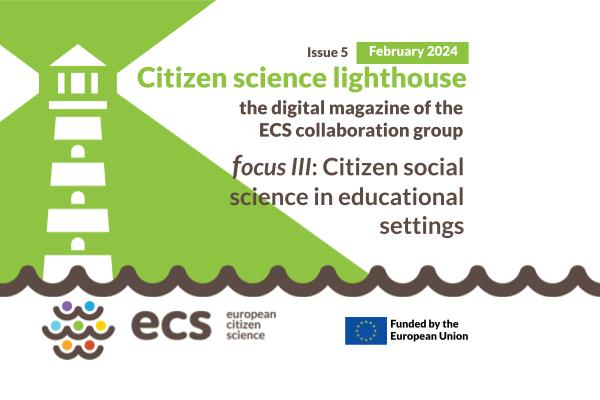
Citizen social science in educational settings
Cathrine Winther
Jan. 31, 2024, 10:58 a.m.
Citizen social science in educational settings
Danish case example on using citizen social science in high school
Cathrine M. S. Winther, Aalborg University, Department of sustainability and planning
As a part of the EU-funded project YouCount, the Danish partners have experimented with implementing citizen social science as a tool for working practice and action-based with sustainability for civic youth engagement. YouCount is funded by Horizon2020 and is created to generate new knowledge about social inclusion and how to create social change and policymaking by involving youth (14-29 years) as citizen social scientists. The project wants to contribute scientific knowledge for youth citizen social science for increased scaling through a multi-case study of nine European countries. All partners have worked with different approaches for hands-on activities within one of the three social inclusion themes: social participation, social belonging, or citizenship.
In the Danish case, we co-designed a high school course with a nature geography teacher where 17 students were engaged as citizen social scientists. We trained the students with scientific research tools to investigate their neighbourhood and how to develop solutions to create a more youth-friendly and sustainable local community. The figure illustrates the collaboration and individual teaching modules structured after the iterative design phases: discover, define, develop and deliver.
We learned from our participatory design approach to citizen social science that including qualitative research methods and design tools in a high school setting enhanced the student's ability to work actively with the neighbourhood and its challenges and enabled new opportunities and perspectives to be investigated. The co-researchers were divided into research teams of five people, where they came to understand the underlying social dynamics in the community. Though the students mainly wanted to design environmentally sustainable solutions, such as a trash event or community gardens, it was with an offset of combining actors of the area's districts for social sustainability (safety, loneliness, community). For the youth, it created motivation to work in project groups and work with a context they could relate to; this supported an alternative approach to teaching, where the students enjoyed the creative methods and procedures that gave them a break from working in front of their computers. As a part of scientific processes, it is essential to disseminate research results to the public. We supported this by arranging an exhibition at a local festival where the co-researchers could present their results and interact with the local community. This gave the youth a voice in the community and the possibility to debate and reflect upon their findings, which is one of the critical elements for developing sustainable action competence.